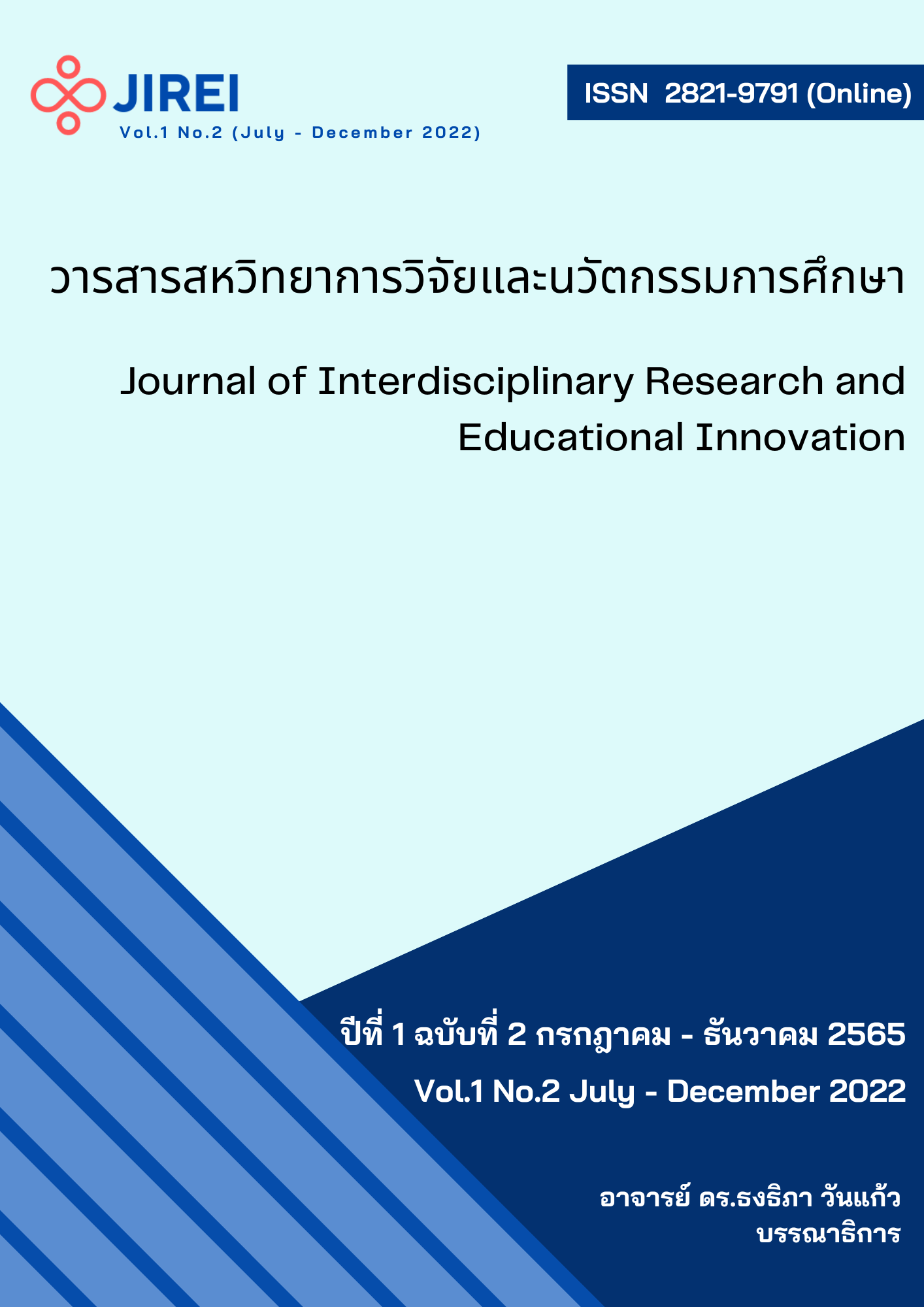The Study of The Results of Mandarin Learning Activities Using The WESPRA Model for Students in Grade 5 Raffle of American International School
คำสำคัญ:
WESPRA model, Mandarin learning, Activities, International schoolบทคัดย่อ
The objectives of this research were to 1) To study the student’s achievement after mandarin learning activities using the WESPRA model and 2) The satisfaction of students after Mandarin learning activities using the WESPRA model. Sample group equal 14 form international students G.5 which the researcher chose purposive sampling. Tools of research has lesson plans using the WESPRA model, behavior observation, and the satisfaction of the student’s mandarin learning activities using the WESPRA model. The IOC equals 0.86, 1, and 0.8 respectively. Use simple statistics to analyze results. The results show that Work skills are at a good level. Students’ achievement after mandarin learning activities using the WESPRA model is at a good level and The satisfaction of topic my family Mandarin learning activities designed using WESPRA model is very satisfactory. Therefore, teaching and learning for students to learn Mandarin in a hands-on manner and can be applied in real life well, the WESPRA model should be used as a conceptual framework for designing teaching and learning activities.
เอกสารอ้างอิง
Curtis, M. E. (1980). Development of components of reading skill. Journal of Educational Psychology, 72(5), 656–669.
Guo, Y. (2015). Research on Chinese Classroom Management in Thai Middle Schools. Shanxi Normal University, 1.
Hoe, F., Lim, T., & Mah, B. (2021). Utilizing WhatsApp Messenger to Enhance Listening Skills of Civil Engineering Degree Students in Mandarin Courses at UiTM Penang Branch. International Journal Of Modern Languages And Applied Linguistics, 5(1), 51-60. doi:10.24191/ijmal.v5i1.11314
Hyland, K., & Hyland, F. (2006). Feedback in second language writing: Contexts and issues. Cambridge University.
Lai, M and Ahamadi, S. M. (2017). An Analysis of Factors Influencing Learners’ English Speaking Skill, International journal of research in English Education, 34-41. Retrieved from https://ijreeonline.com/article-1-38-en.pdf
Morley, J. (1991). "The Pronunciation Component in Teaching English to Speakers of Other Languages." TESOL Quarterly 25(3).
Butsaba Sonjai and Pathitta Piyasakulsewee. (2022). MAPS, a stylish activity format to enhance Thai language learning skills Grade 4. Journal of Interdisciplinary Research and Educational Innovation, 1(1). 87-99.
Pathitta Piyasakulsewee and Napaporn Tunya, N. (2022). WESPRA MODEL FOR STEM EDUCATION LEARNING MANAGEMENT. Journal of Social Science and Buddhistic Anthropology, 7(3), 106–120. Retrieved from https://so04.tci-thaijo.org/index.php/JSBA/article/view/252204
Pathitta Piyasakulsewee. (2021). The study the learning outcome of grade 3 students who were taught using “GM Game Maker: a constructivism instructional design technique Retrieved from https://daipaan.one/gm-game-maker/





